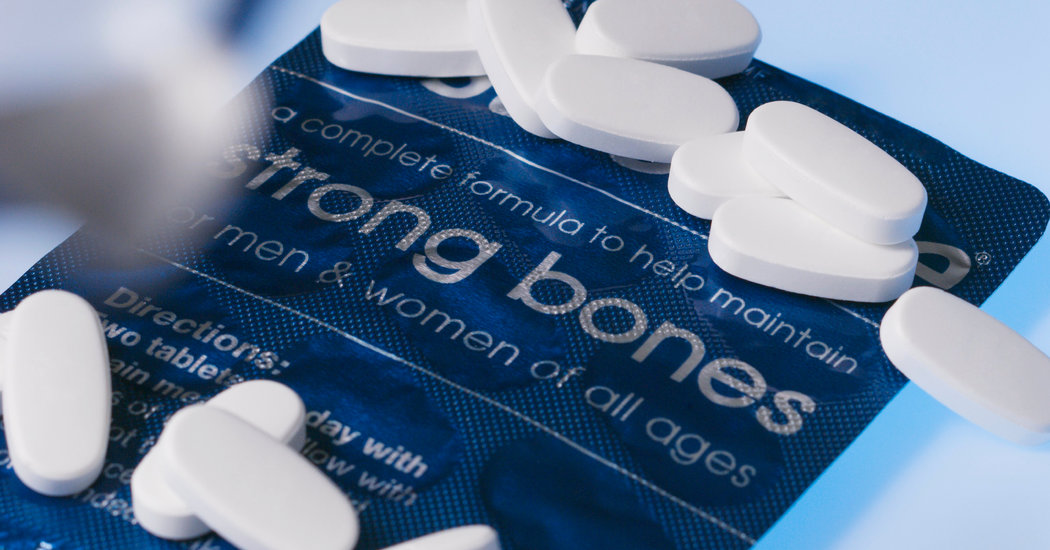
Q. Are calcium supplements safe?
A. The short answer is probably yes.
Many people, especially women, take calcium supplements in the hope of building stronger bones, but whether calcium supplements prevent fractures remains uncertain. The United States Preventive Services Task Force advises postmenopausal women against taking 1,000 milligrams a day or less for preventing fractures and says not enough is known about the risks and benefits of taking higher doses.
What are the risks? Kidney stones are the most widely recognized risk of calcium supplements, but that risk depends on whether you are also taking vitamin D. The Women’s Health Initiative, a randomized placebo-controlled trial of calcium and vitamin D in more than 36,000 postmenopausal women, found a 17 percent increase in the incidence of kidney stones. A report prepared for the Preventive Services Task Force supported this conclusion, but noted that the risk disappeared when calcium was taken without vitamin D.
Studies have investigated other potential safety concerns, including an increased risk of death, cancer and heart disease. But data from the Women’s Health Initiative and another large study from the National Cancer Institute, both of which assessed calcium in combination with vitamin D, found that calcium supplements do not increase the risk of dying prematurely. These and other studies also found no increased risk of breast cancer, colorectal cancer, precancerous colonic polyps or cancer in general.
Calcium supplements probably do not increase the risk of heart disease. The best evidence, again, comes from the Women’s Health Initiative study of calcium and vitamin D. A Harvard review supports this conclusion, stating that “calcium intake, either from diet or from supplements, has little or no effect on cardiovascular disease risk.”
Because Preventive Services Task Force guidelines stop short of recommending calcium supplements, the decision on whether to take them must depend on your individual health concerns. A history of osteoporosis, for example, might argue in favor of calcium supplements, whereas a history of kidney stones might be a reason to avoid them. Calcium can also interact with certain medications, such as the thyroid medicine levothyroxine or the popular anti-osteoporosis drug Fosamax.
Aside from these concerns, there is ample evidence to suggest that calcium supplements are safe.
Do you have a health question? Ask Well





